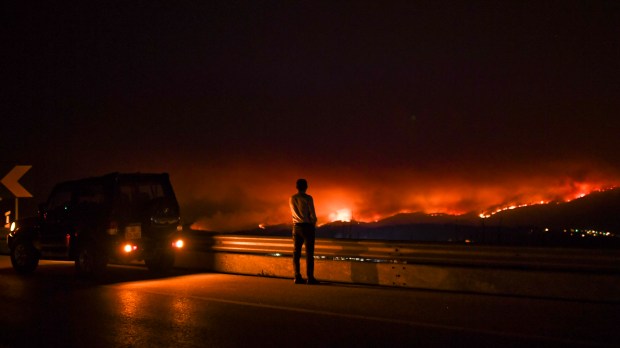“Where do the wars and where do the conflicts among you come from?” asks the Letter of James (Jas 4:1).
In an oft-told story, the famous London newspaper, The Times, sent inquiries asking journalists and commentators to answer the question: “What’s wrong with the world?” One author sent a simple, witty, and profound reply:
Dear Sir,
I am.
Yours, G.K. Chesterton.
Despite the lack of documentary evidence from The Times archive, the anecdote seems typical of Chesterton’s humility and wit.
But it seems, if he did write The Times, he had more to say on the matter. In fact, Chesterton wrote an entire book on the subject, published in 1910, candidly titled, What’s Wrong with the World? And in typical Chestertonian fashion, the answer comes, promptly and subversively. At the end of the first chapter of part one, he writes, “I have called this book ‘What Is Wrong with the World?’ and the upshot of the title can be easily and clearly stated. What is wrong is that we do not ask what is right.”
It is easy to agree on what is wrong. The COVID-19 pandemic should be resolved. There should be peace in the Middle East and in the Pacific. Abject poverty should be ended. Priests should be faithful and not cause scandal. No one should suffer injustice because of their race. Who in their right mind would disagree?
But like doctors debating a course of treatment, it is the remedy which gives us pause.
And so we quickly find ourselves back at our point of departure. Because although institutions and policies matter, for the Christian—that is, for every adopted Son and Daughter of the Father—my heart matters first.
And that is the diagnosis of the Letter of James. “Where do the wars and where do the conflicts among you come from?”, the Scriptures ask. And then the answer follows: “Is it not from your passions that make war within your members?” (Jas 4:1).
So in this battle of Christian life, where wars and attacks spring forth from my heart, how do I make it better? What can I do to bring peace?
- Pray prayers of gratitude. Building up the virtue of gratitude helps us to see God’s work in our lives. It’s easy to feel abandoned and lost. Can God not fix this? Does he not understand? But we’re often so focused on our perceived absence of God that we overlook what he is doing. Gratitude helps us to acknowledge God’s work and cultivates a disposition of heart whereby we can more readily see his work.
- Just don’t say it. Not every feeling needs to be named. It seems to me that social media and text messaging fuel the urge to express every feeling, every passing thought. Some feelings and thoughts, however, are sinful. Some things should not be said. James tells us, “[The tongue] is a restless evil, full of deadly poison” (Jas 3:8). We should take that seriously.
- Stop comparing. It’s so tempting to constantly compare ourselves to others. This or that one is more handsome…This or that one has more friends…This or that one is more successful… Blessedly, God did not make a mistake when he created us. He made us exactly how he wanted us to be. This doesn’t mean that we should not pursue excellence, no, on the contrary, we ought to cultivate our gifts and talents because they come from God. But precisely because he gave them, we should stop envying what belongs to others and take comfort in what he has seen fit to give to us..
By committing to these and other such virtues, we make room for Christ in our hearts. By cooperating with his grace, we are conformed to the Lord, so that our hearts might look that much more like his Sacred Heart.

Chesterton concludes his book, saying, “As is common in most modern discussions the unmentionable thing is the pivot of the whole discussion.” No one wants to hear a call to conversion. It is so much easier to believe the problem is out there.
And yet here we are, rooting out the darker things that lurk in our hearts, knowing that only the grace of Jesus Christ and his holy cross, will make such a thing possible. Be honest. When asked “Where do the wars and conflicts come from?”, may every Christian say: from my heart.

